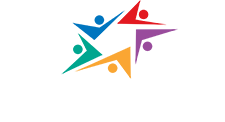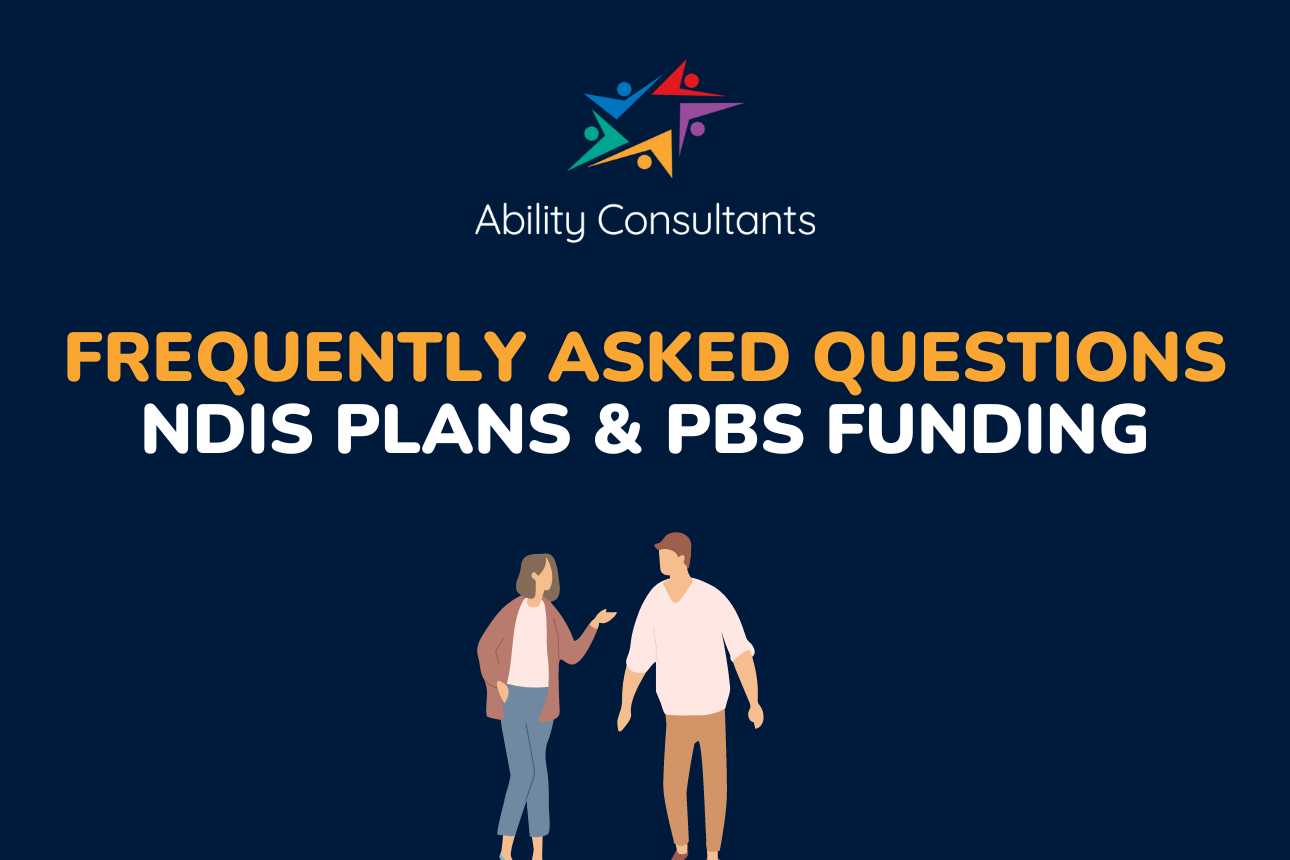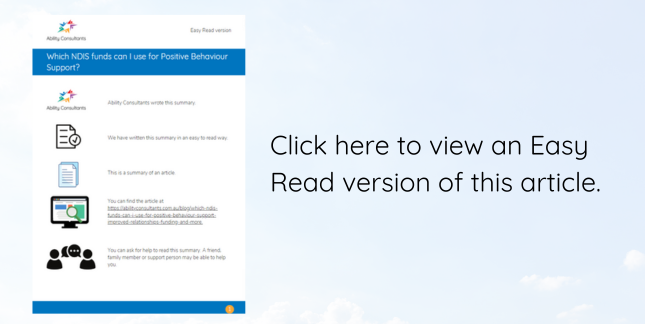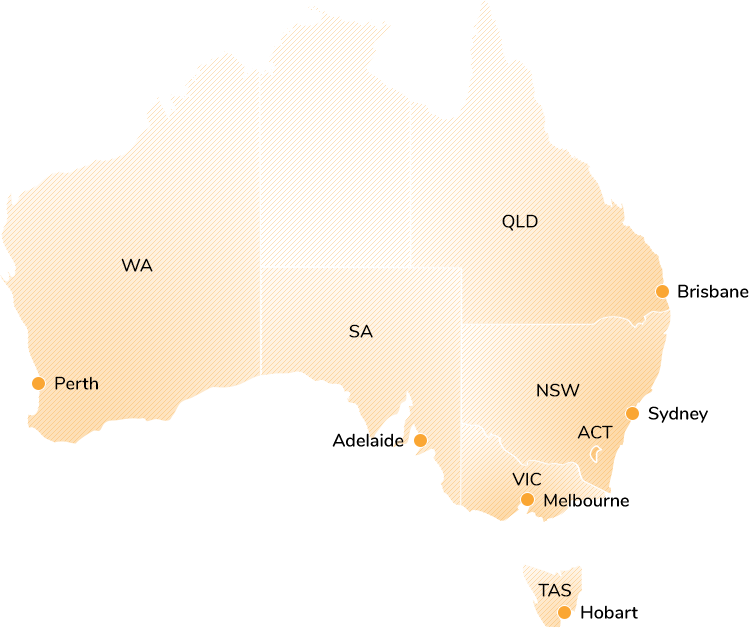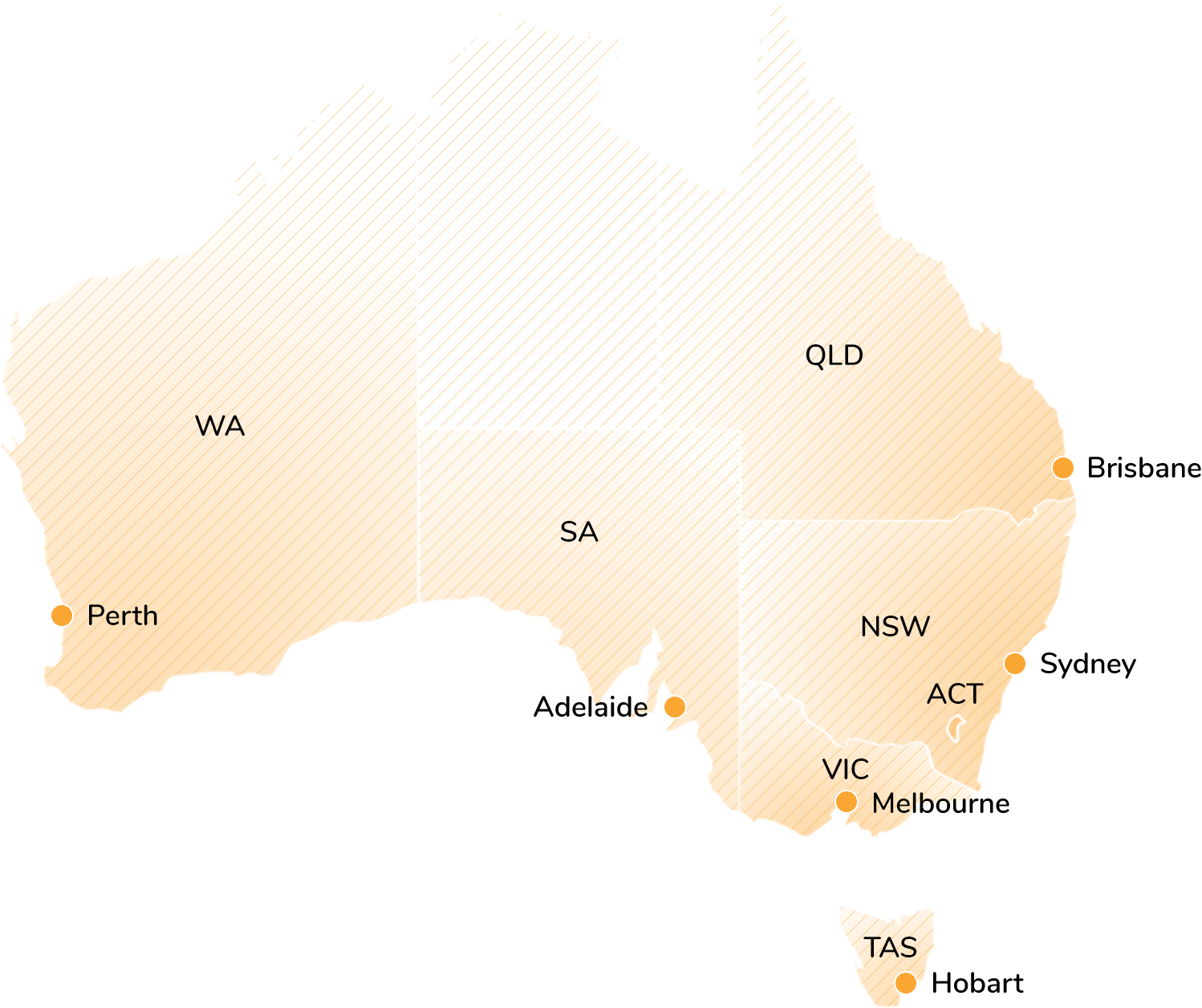Which NDIS funds can I use for Positive Behaviour Support? Find out here.
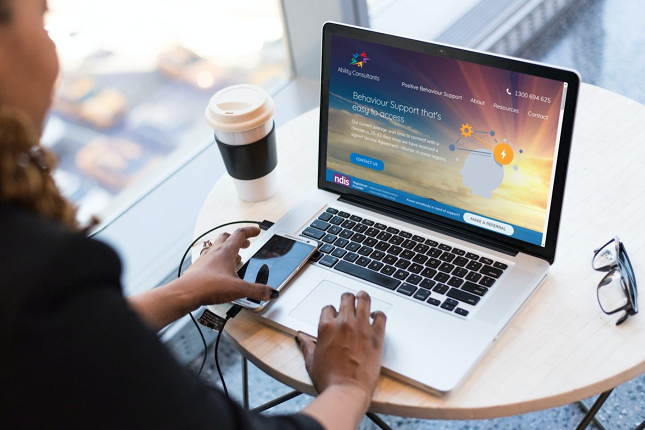
Figuring out which NDIS funds you can use for Positive Behaviour Support can feel confusing, but it doesn’t need to be. Navigating the NDIS can be difficult and we can make this easier for you. In this article, we’ll look at which NDIS funds you can use for Positive Behaviour Support (PBS).
What is Positive Behaviour Support?
Positive Behaviour Support transforms a person’s quality of life by building new support strategies, skills and behaviours to meet their needs and goals.
PBS is based on understanding, and working on:
- Your existing routines, values, social connections and personal strengths
- Any behaviour that is a challenge for you
- New ways to meet your needs that don't require challenging behaviour
- Positive behaviours and skills you aim to develop to meet the goals that matter to you
Watch this video to learn more about Positive Behaviour Support.
The 3 types of NDIS support budgets
If you have an NDIS Plan, it may include three types of NDIS support budgets: Core, Capital and Capacity Building. Each budget is made up of several categories.
Core Supports
Your Core Supports budget can help with everyday living, such as home cleaning and maintenance, consumables, a support worker and transport.
There is some flexibility with Core Support funding, for example, you can use most funds across different support categories as needed. You may be eligible to use part of your Core budget for Positive Behaviour Support — we’ll cover this more below.
Capacity Building Supports
The purpose of Capacity Building Supports is to help you improve your independence and help you achieve your goals. Funds are allocated to specific support categories and can only be used for support that falls in that same category — funds can’t be moved around to different categories.
There are multiple categories in Capacity Building Supports, such as support coordination, social and community participation, job support, health and wellbeing, learning, daily living and behaviour support. We’ll cover this more below, so you can see which Capacity Building funds you can use for Positive Behaviour Support.
Capital Supports
If you have a Capital Supports Budget in your NDIS Plan, these funds can be used for Assistive Technology and Home Modifications. Capital Support Budgets cannot be used for Positive Behaviour Support. Click here find out more about Capital Support Budgets.
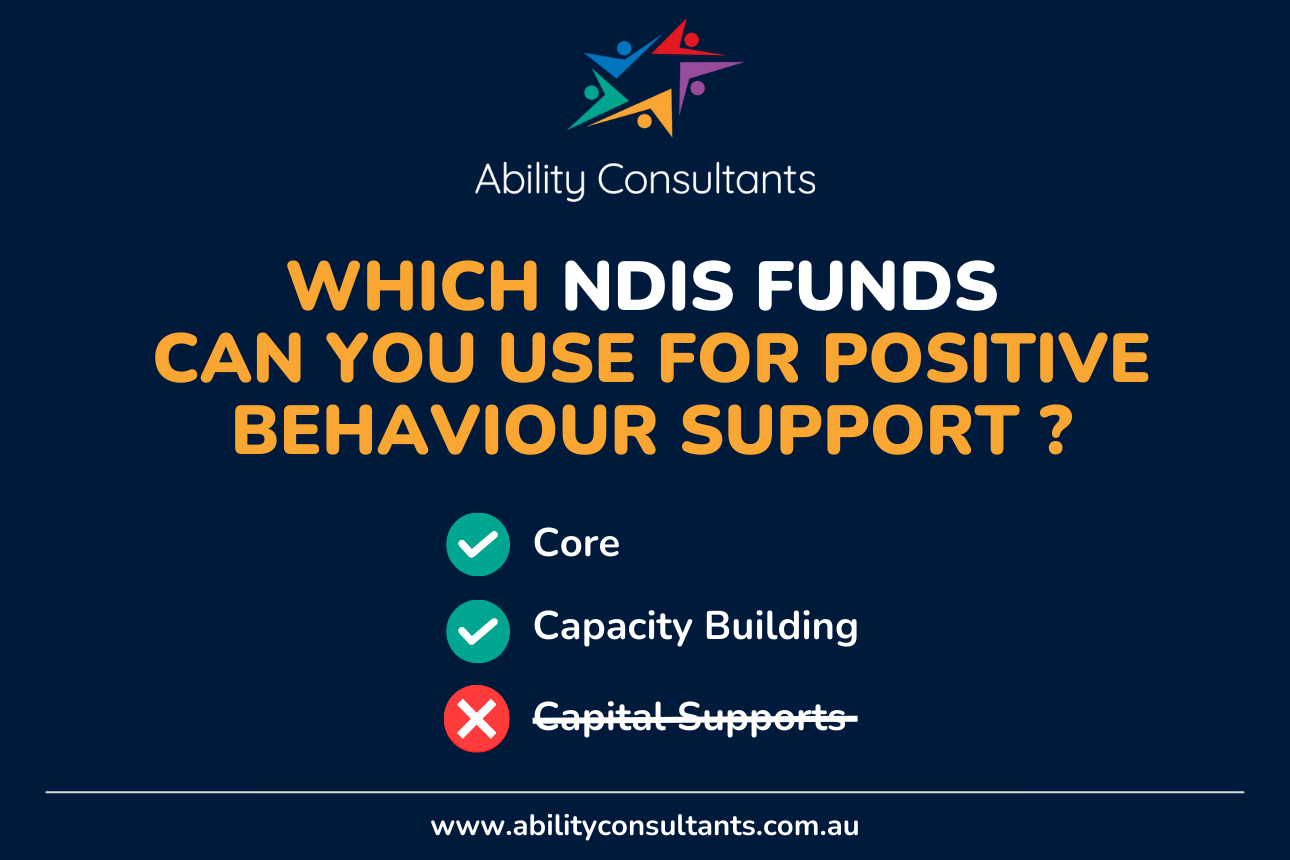
Which NDIS support budgets can I use for Positive Behaviour Support?
The two NDIS support budgets which you can use for Positive Behaviour Support are Capacity Building and Core. Core funds can only be used for Positive Behaviour Support under specific circumstances. 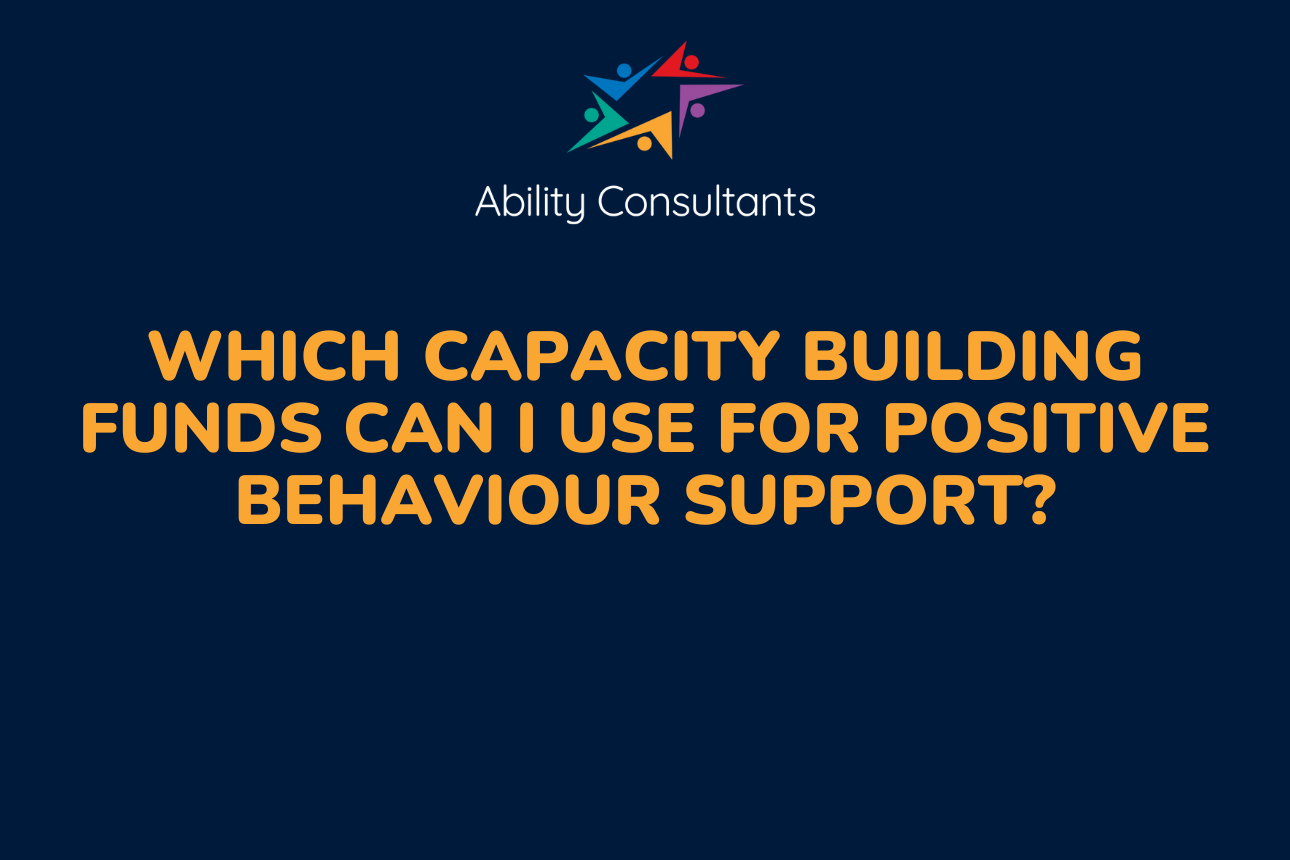
Which Capacity Building funds can I use for Positive Behaviour Support?
Within your Capacity Building budget there are two funding categories which you can use for Positive Behaviour Support.
Behaviour Support
With the rollout of PACE plans within the NDIS, Improved Relationships funding is now called Behaviour Support. It is still classified as Capacity Building Funding however it no longer provides the breakdown of the budget within the plan.
Capacity Building funds allocated to your Behaviour Support category cannot be reallocated to a different category. Ideally, you will have Behaviour Support funding for Positive Behaviour Support — this is particularly important if you have Restrictive Practices in place.
In your NDIS Plan, Behaviour Support funds might look like “CB Relationships”. The relevant line items for billing to these funds are:
- CB Relationships 11_022_0110_7_3
- CB Relationships 11_023_0110_7_3.
Improved Relationships
Improved Relationships (IR) funding was previously used for Positive Behaviour Support and may still be included in NDIS plans which have not changed to a PACE plan. The NDIS states that “This support will help you develop positive behaviours and interact with others.”
The Improved Relationships category also includes “Individual Social Skills Development”, line item 024. We don’t provide support using these funds.
Can I use Improved Daily Living funds for Positive Behaviour Support?
Improved Daily Living (IDL) funds can only be used for Positive Behaviour Support under specific circumstances.
IDL funds can be used for a few different supports such as exercise physiology, occupational therapy, podiatry, psychology and speech therapy. The NDIS states that this category includes “Assessment, training or therapy to help increase your skills, independence and community participation. These services can be delivered in groups or individually.”
Within the Capacity Building budget, funds allocated to IDL are a little bit flexible, however, funds cannot be reallocated to a different category.
IDL funds cannot be used for ongoing Positive Behaviour Support, but can be used for an initial assessment of behavioural circumstances and support needs, to inform a recommendation report for future Behaviour Support funding to be included in future NDIS plans.
Our priority if IDL funds are used, is that we do not adversely impact on other supports you require and we minimise the number of hours used to provide an initial assessment and recommendation report.
For NDIS participants aged 9 or older, the IDL line item is 15_056_0128_1_3.
For children aged younger than 9, the line item CB Early Childhood 15_005_0118_1_3 may also be used for Positive Behaviour Support.
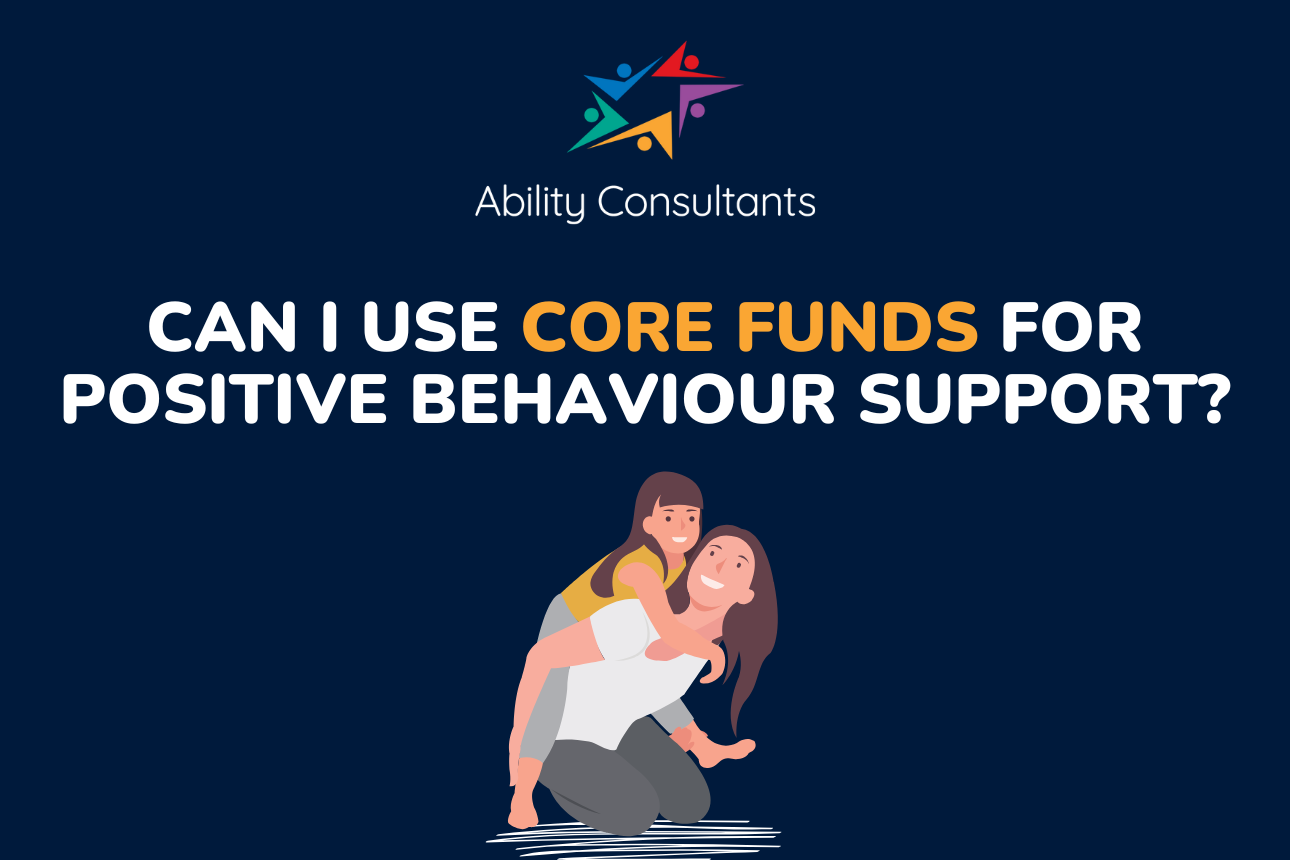
Core funds and Positive Behaviour Support
In line with NDIS changes, Core funds cannot be used for ongoing Positive Behaviour Support. However, Core funds can be accessed for an initial assessment of behavioural circumstances and support needs, to inform a recommendation report for future Behaviour Support funding to be included in future NDIS plans.
Our priority when Core funds are used, is that we do not adversely impact on other supports you require. We take extreme care to only use specific funds which you or your representative have allocated for Positive Behaviour Support, and we only look at Core funding as a last resort if there are no Behaviour Support or Improved Daily Living funds available.
For example, You might have $40,000 allocated to your Core Supports. You might use your Core Support budget to pay for your cleaner, support worker, transport, occupational therapist and Positive Behaviour Support. If you allocate 10 hours for a Positive Behaviour Support recommendations report, we only use 10 hours.
On your financial records, the line item we might bill in your Core Support budget is:
- Core Funds 01_741_0128_1_3.
Questions about NDIS Plans and Positive Behaviour Support funding
Click below to see Frequently Asked Questions about NDIS Plans and Positive Behaviour Support.
If you have questions about your NDIS funds and Positive Behaviour Support funding, don’t worry, you’re not alone.
We recommend visiting our article about Frequently Asked Questions about NDIS funding for Positive Behaviour Support, where you can find out what to do if you don’t have PBS funding and what PBS funding can be used for.
You are also welcome to contact us on 1300 694 625 or by using our contact form. We can help you identify if you have NDIS funds available for Positive Behaviour Support.
About Ability Consultants
Ability Consultants is a Registered NDIS Provider in Australia. Our mission is to create freedom and social connection through easy access to Positive Behaviour Support.
Our team of over 140 provides Positive Behaviour Support throughout Australia, supporting NDIS participants and helping improve their quality of life. We also provide psychology services in person in New South Wales and other locations through telepractice.
To make a referral for Positive Behaviour Support, please complete our referral form. Please also feel welcome to bookmark our website for easy access to our referral form.
Originally published June 2023.
Updated 13 December 2024, 8 July 2025.

